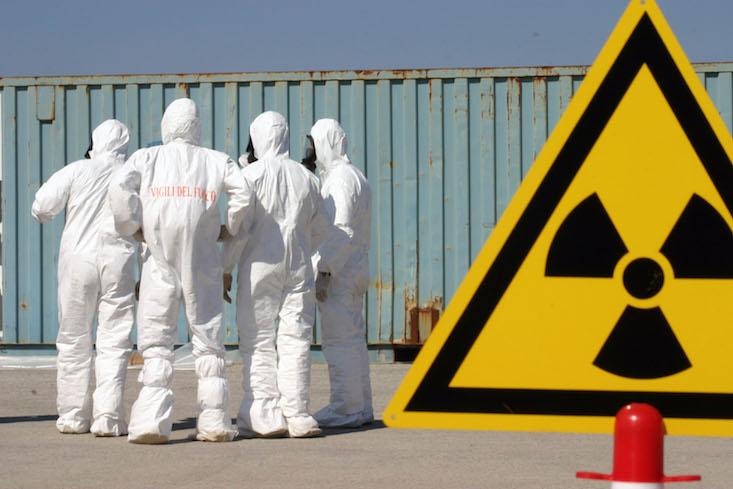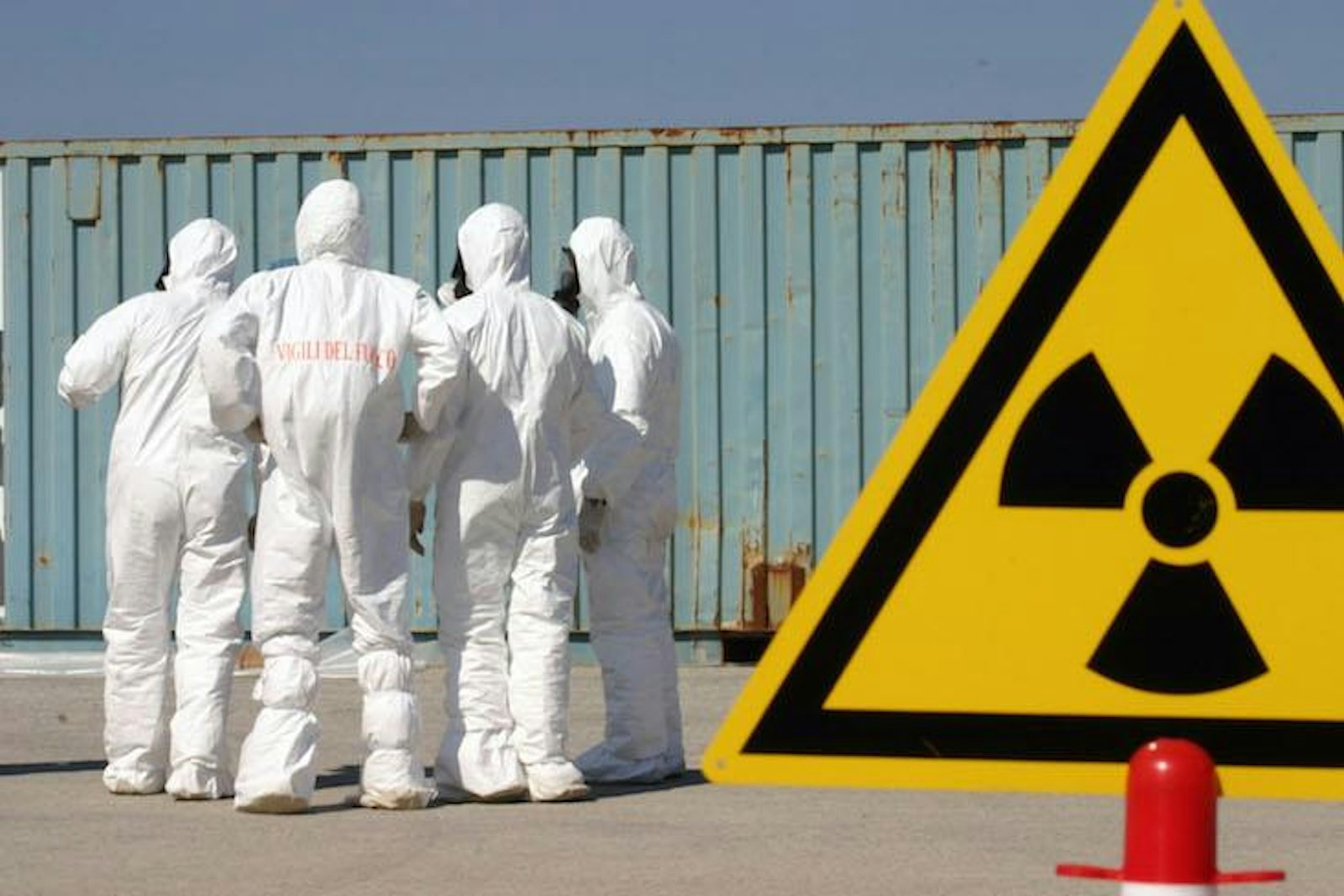
In August 2013, Finland’s young nuclear professionals, under 35 years old, met up for the Summer Games in Mikkeli municipality, put on by the Finnish Nuclear Society’s Young Generation Group. Launched in 1998, the organization helps people interested in nuclear fields network. As usual, the plan was to escape office life, eat, drink, use the sauna, and bond through fun competitions outdoors. The Summer Games events often have a dark humor to them—they play around with nuclear disaster scenarios in ways outsiders might find jarring. Yet this edgy outdoor sporting is a powerful way of raising workforce morale. It’s an aspect of a culture that may, from afar, seem to admire only cold, sterile rationality.
Part of what fascinates me as an anthropologist is the way nuclear experts live their lives. After living among them in Finland for almost three years, I found how they communicated in these games—using satire, jokes, and irony—surprising. In past years’ games, they pretended to be emergency responders, spraying Super Soaker water guns at a beach ball they imagined to be a melting-down reactor. Their mission was to cool down its make-believe core. In another sporting event, they used a slingshot—one resembling those in Finland’s famed Angry Birds phone games—to hurl objects at a box with balloons inside. With a nuclear reactor shape painted on the box, they imagined they were terrorists attacking a power plant.
In 2013, at Mikkeli, tasks were more challenging. A large candle was placed inside a glass container, which represented a melting-down nuclear reactor and a containment building. Players, standing 16 or so feet away from the candle, had to cool it with a large water bucket and five spoons. One team devised a quirky strategy: They threw the full bucket of water at the glass, breaking it. The containment structure collapsed. The imagined reactor shut down. In yet another game, players carried backpacks full of expensive radiation detection equipment lent to them by a Finnish company that designs technology for special military operations. Their mission was to search for a slightly radioactive object hidden in a hot Finnish sauna.
When chatting with Finland’s nuclear youths, I wondered: How could they treat serious threats and grave tragedies, like nuclear meltdowns or terrorist attacks, in such light-hearted ways, with all the silliness of a hide-and-seek game? One of the organizers offered an explanation: The Summer Games alleviated the stresses of daily work life by inverting them into their opposites. Nuclear risks were treated humorously and playfully at the yearly Summer Games retreats precisely because they were treated seriously and sternly on the job every day.
Dark humor is deeply human.
A behavioral scientist might say Finland’s nuclear youths used low-stakes gaming to create a “benign violation” zone, a detached distance from tragedy. This was an unserious space where meltdowns, war battles, and terrorism could momentarily seem funny. This allowed them to let off steam, kick back, and unwind together by pushing aside, temporarily, grave responsibilities they shared at work. The lightness of nuclear humor became, for them, a rejuvenating counterpoint to the heaviness of nuclear risk.
Dark humor is key to many other high-intensity professions as well. A 2013 article explained how dark humor acts as a social “glue” reinforcing camaraderie among police officers and ambulance crews. As criminologist Sarah Charman put it, “By normalizing a situation through humor, a stressful encounter can be made more manageable—humor allows people to control feelings of fear or vulnerability.”
And yet, as anthropologist David Graeber argues, there is much more to playing than its strategic power, as a means for achieving a practical end. Play is not just a tool for maximizing self-interest, increasing productivity, or becoming a more-efficient professional. It can also momentarily free us from the cold demands of self-serving calculation and means-ends rationalism altogether. This holds even, and perhaps especially, in serious places one might, at first blush, assume to be devoid of humor. Play can be found in boring bureaucracies, among seemingly uptight police, among mission-driven EMTs, in austere prisons, amidst the tedium of office life, and even among seemingly hyper-rational nuclear engineers.
So when you hear a friend or co-worker joking about serious matters, remember to reflect, before passing judgment, on the motivations behind his or her irreverence. Dark humor is not always a callous reaction to life’s tragedies. Often, it sprouts up among people who care so deeply about the day-to-day that they, every now and then, need a fun moment of release. Nor does dark humor mean one has failed to comprehend the full severity of a tragedy. On the contrary, some psychologists see dark humor’s “playful fictions” as indications of “complex information-processing” or high intelligence.
Finland’s young nuclear professionals taught me that dark humor is deeply human—it can help one grow into a more open-minded, team-working, and enthusiastic employee.
Vincent Ialenti is a MacArthur Nuclear Waste Solutions Fellow at George Washington University’s Elliott School of International Affairs. He holds a PhD in Anthropology from Cornell University and an MSc in “Law, Anthropology & Society” from the London School of Economics.
Portions of this article are derived from “The (Un)bearable Lightness of Nuclear Energy in Finland,” published in the 2014 “Forum on Anthropologies of Humor” in Suomen Antropologi: The Journal of the Finnish Anthropological Society 39(4).
WATCH: How to understand people better.































